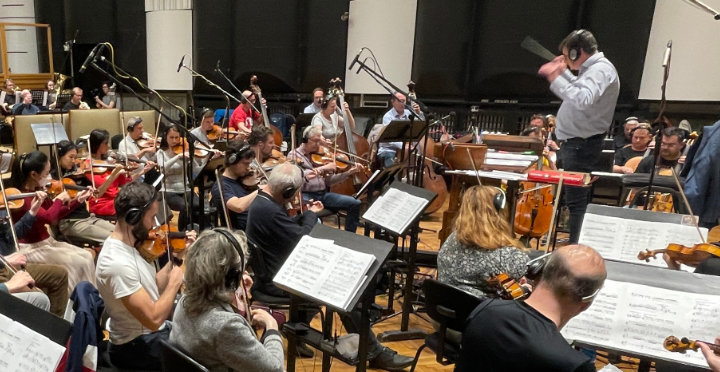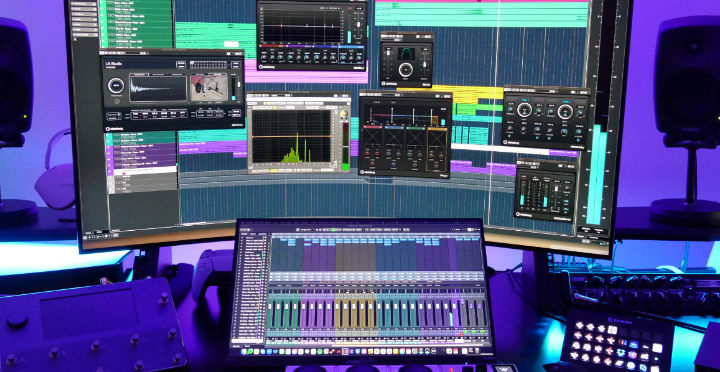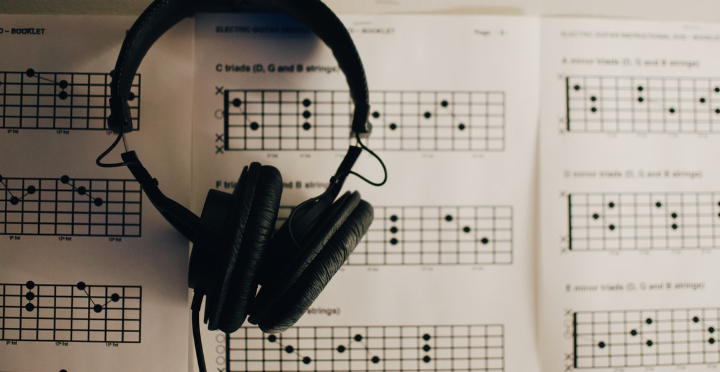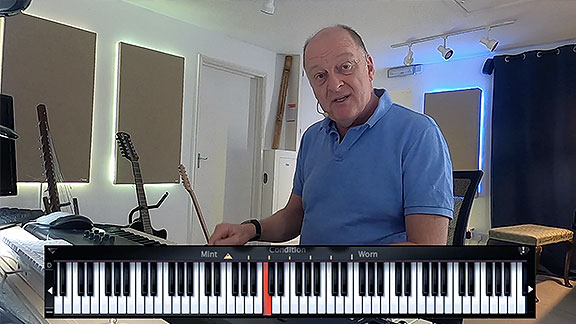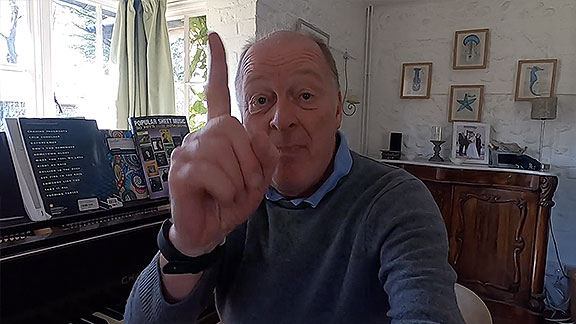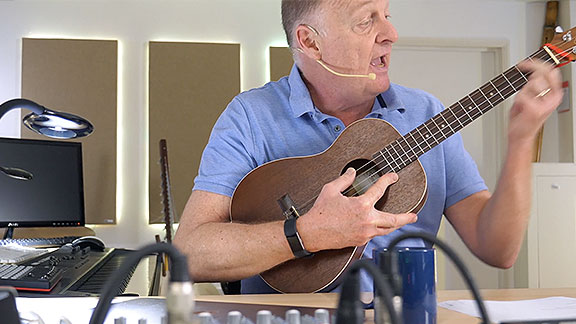LEARN MUSIC THEORY
WITH GUY MICHELMORE
$49
Online course. Lifetime access.
QUICK, PRACTICAL AND FUN. THE WAY MUSIC THEORY SHOULD BE
An entertaining and straightforward 12-hour course in how music works and how it is written down. If you have struggled to get your head around scales and chord progressions, then this course is for you. Whether you are a guitarist, electronic musician, songwriter or just love music, Learn Music Theory will give you techniques to apply to your music straight away.
LEARN TECHNIQUES FOR WRITING BETTER MUSIC
The course is divided into two parts. Part one begins with the fundamentals, looking at pitch, octaves, scales. and keys. Then you will learn about chords and harmony, before moving on to rhythm and music notation.
The second part takes you into deeper ideas, such as extended chords and progressions. It is these ideas that can show you how music theory can make you a better musician and songwriter.
By the end you will also understand extended chromatic chords, how a full orchestral score works, and how to create a lead sheet.
- First fundamentals through to advanced concepts – it is a complete music theory journey.
- Tutorials to support every level of knowledge and curiosity – choose your own path.
- Over 12 hours of video tutorials explaining every aspect of music theory in Guy's distinctive and uniquely accessible style.
- Music theory for guitarists.
What you'll learn
PART 1: MUSIC THEORY FUNDAMENTALS
1. PITCH, OCTAVES AND NAMING NOTES
Starting with the fundamentals, we look at how notes are identified and organised.
2. SCALES & KEYS
3. THE BASICS OF CHORDS & HARMONY
How to label the aural relationship between two notes, and learn to build chords using intervals of thirds.
4. RHYTHM
5. HOW MUSIC IS WRITTEN DOWN
PART 2: MUSIC THEORY IN ACTION
6. APPLYING THEORY TO YOUR MUSIC
7. MORE ADVANCED HARMONY & CHORDS
8. THE WONDERFUL WORLD OF MODES
9. INTRODUCTION TO THE ORCHESTRA
10. EXTRAS
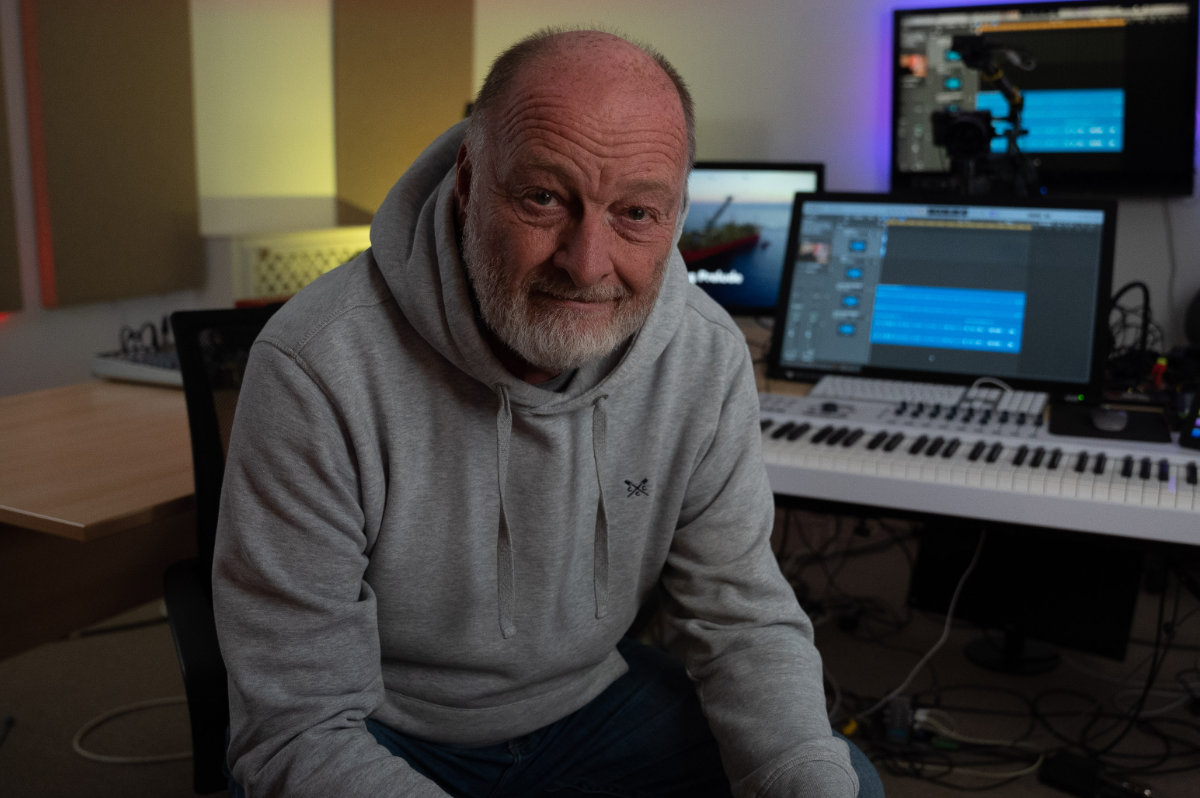
GUY MICHELMORE
Guy Michelmore is a multi award-winning film, games and television composer whose clients include Marvel, Disney, Dreamworks, Lionsgate and dozens of major TV networks around the world. He is best known for his work with Marvel on eight animated feature films including Ultimate Avengers and Thor, as well as hundreds of episodes of television including Avengers: Earth’s Mightiest Heroes, Iron Man: Armoured Adventures, Hulk and many more.
His unique and accessible style has made him a popular YouTuber with over 300,000 subscribers.

TOM JANES
Joining Guy is Tom Janes — classical guitarist extraordinaire and music theory guru. Tom is a first class graduate from the Arts University Bournemouth in composition. As a music theory enthusiast, Tom has written numerous blog posts and course texts for ThinkSpace Education.
Tom is a regular gigging musician, playing numerous festivals and venues across the UK, and as a recording artist has performed on TV shows, documentaries, apps, podcasts and more.
"I now feel like the idea of music theory as a language is now more tangible for me as an untrained musician."
Josh McCausland
Course student
ONLINE LEARNING THAT's MADE FOR MUSIC
Course videos, notes and quizzes are all available inside the ThinkSpace Course Reader — the same custom-built system used by our Master’s Degree students. It works seamlessly on computers, tablets and phones.
Video Tutorials explain essential concepts and ideas in a straightforward manner. Didn’t quite get it first time? Don’t worry, many of the main ideas are supported by Further Explanation Videos. It’s just like asking your teacher to explain something again.
If you do get it first time, you can move on, or choose one of the Going Deeper tutorials — which look at more complicated and advanced ideas. You can then check your understanding with a short quiz.
Finally, Course Notes give you a detailed, written explanation of the ideas in the video tutorials, supported with illustrations and diagrams.
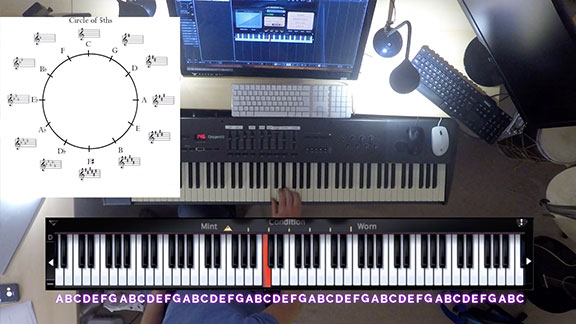
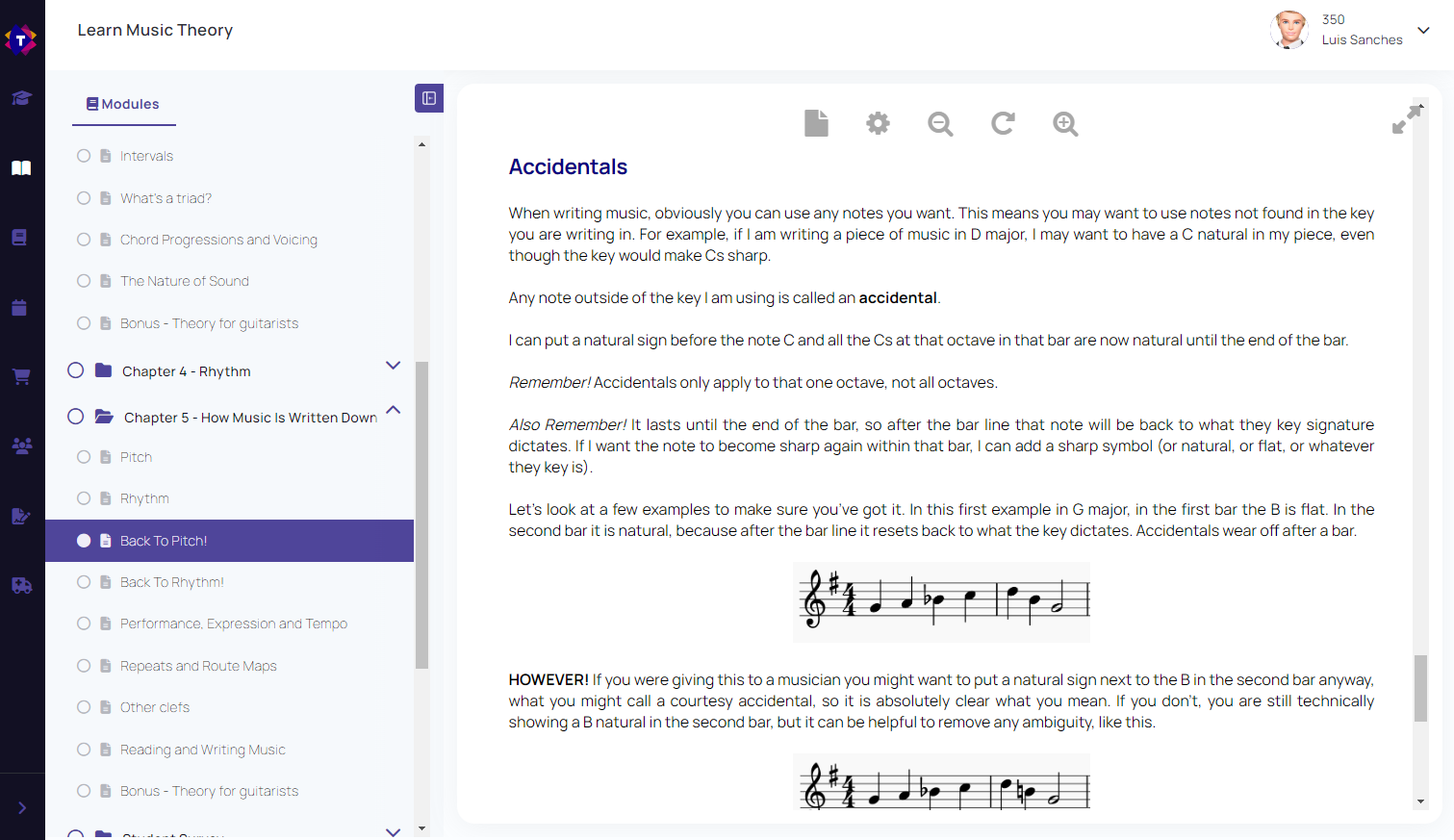
Get Started Today
- Over 12 hours of enaging video tutorials.
- Check your progress with short quizzes
- Comprehensive course notes and illustrations
- Lifelong access to the course and all videos
Lifetime access. Start, finish and revisit anytime.
30-day money-back policy
Frequently Asked Questions
If you are thinking about taking the course, there are some requirements you may want to consider. Here are the most frequently asked student questions to help you to assess whether the courses is right for you.
Related Courses
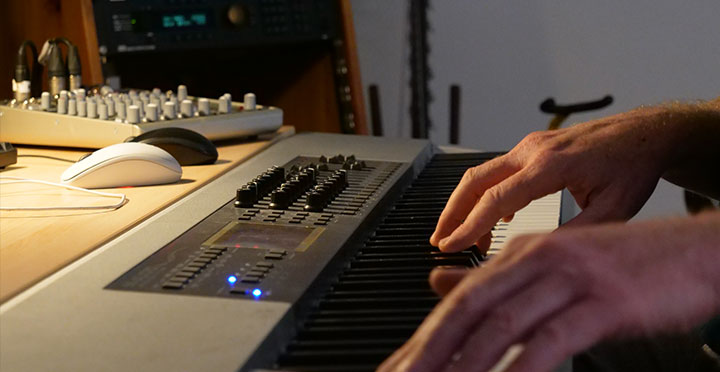
HOW TO WRITE MUSIC
$49
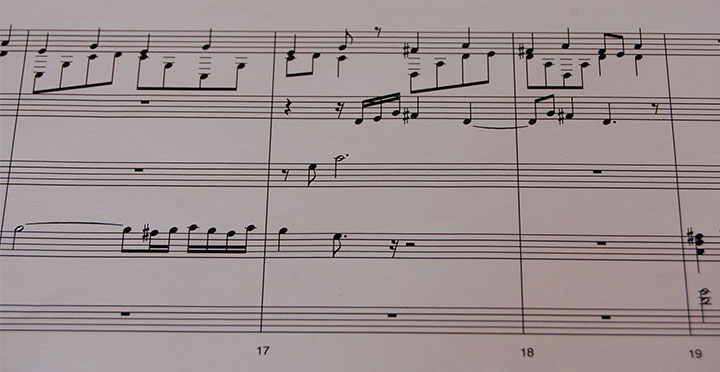
HARMONY ONE
$99
Transform your music with harmonic interest and master 4-part harmony.
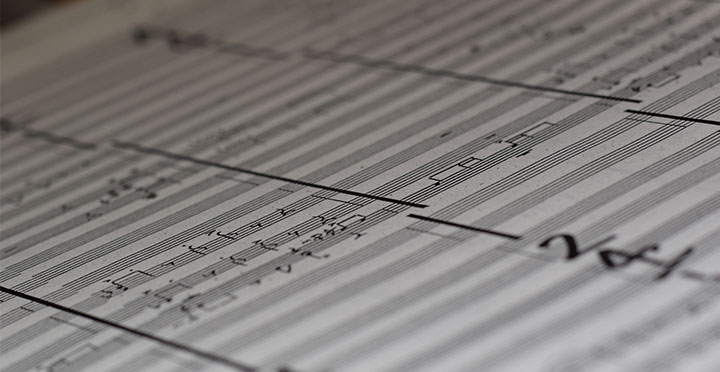
HARMONY TWO
$99
Make your music stand out from the crowd with complex harmonic passages.

SAMPLED ORCHESTRATION
A ThinkSpace Interactive course. Create MIDI mockups with the realism of a live orchestra.
Related Masters degrees
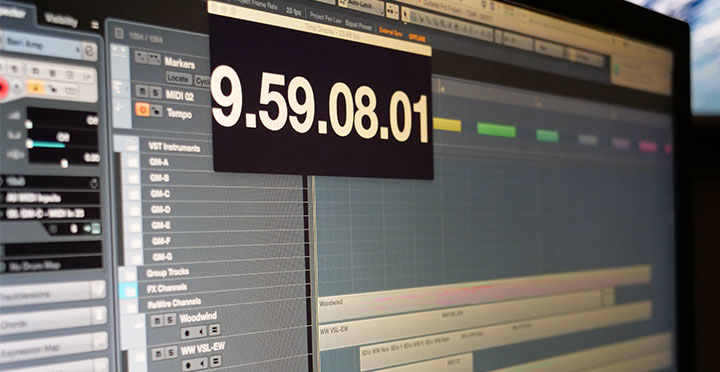
MA PROFESSIONAL MEDIA COMPOSITION
Offering much more than your average Film Scoring Masters, this course teaches you all you need to know about the challenges of writing for film, TV, and other types of commercial media. Hear from professionals with a long history of working in the industry, as well as from those working on the front-lines today.

MA ORCHESTRATION FOR FILM, GAMES & TELEVISION
If you want to write uplifting, epic orchestral music for film, games or television, this is the course that will give you the technical and creative skills you need – taking you from first sketch through sampled mock-up, then onto the final recording with a live orchestral session.





























